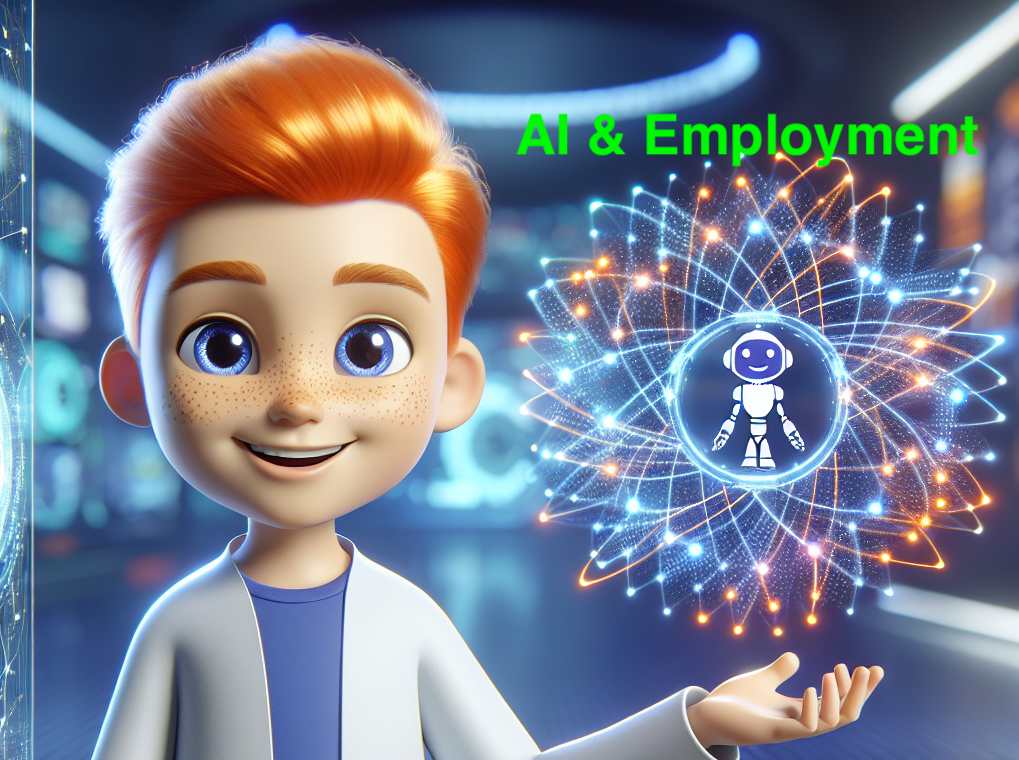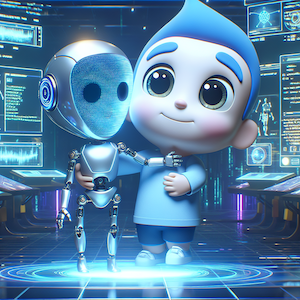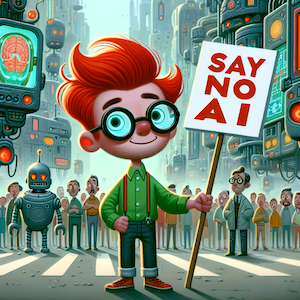AI's Double-Edged Sword: Assessing Employment Challenges and Opportunities

Artificial Intelligence (AI) is rapidly transforming industries and redefining the modern workplace. As we stand on the precipice of an AI-driven future, it's essential to understand the dual impact AI has on employment. On one hand, AI offers tremendous opportunities for innovation and efficiency. On the other hand, it poses significant challenges to the traditional job market.This blog will delve into these dual aspects, exploring both the potential benefits and the hurdles that AI presents to employment.
Opportunities Created by AI

1. Job Creation in New Sectors
AI is not just a job destroyer; it is also a job creator. The rise of AI has led to the emergence of entirely new industries and roles. Positions such as AI ethicists, data scientists, and machine learning engineers are in high demand. These roles require a deep understanding of AI algorithms, big data analytics, and computer science, creating lucrative opportunities for those with the right skills.
2. Enhanced Productivity
AI-powered tools and automation can significantly boost productivity across various sectors. For instance, AI-driven software can manage repetitive tasks, allowing employees to focus on more strategic and creative aspects of their jobs. In industries like manufacturing, AI-driven robots are improving efficiency and precision, leading to higher output and reduced error rates.
3. Personalized Customer Experiences
AI technologies such as natural language processing (NLP) and machine learning algorithms are revolutionizing customer service. Chatbots and virtual assistants provide personalized customer interactions, enhancing user experience and freeing up human employees to handle more complex inquiries. This shift not only improves customer satisfaction but also fosters new roles in AI maintenance and development.
Challenges Posed by AI

1. Displacement of Jobs
One of the most significant concerns with AI is the displacement of jobs. Automation and AI-driven systems can perform tasks that were once the exclusive domain of humans. This shift is particularly evident in industries like manufacturing, retail, and transportation, where robots and AI systems are replacing manual labor. Workers in these sectors face the risk of unemployment or the need to retrain for new roles.
2. Skills Gap
The rapid advancement of AI technology has created a skills gap in the workforce. There is a growing demand for professionals with expertise in AI, machine learning, and data science. However, the supply of qualified individuals has not kept pace with this demand. Bridging this skills gap requires significant investment in education and training programs to equip workers with the necessary skills.
3. Ethical and Social Implications
AI also brings to the fore several ethical and social concerns. Issues such as data privacy, algorithmic bias, and the ethical use of AI in decision-making processes are critical challenges that need to be addressed. Companies and governments must work together to establish regulations and ethical guidelines to ensure that AI is used responsibly and transparently.
Balancing the Scales
To harness the benefits of AI while mitigating its challenges, a multifaceted approach is necessary:
- Education and Training Programs: Investing in education and continuous learning is crucial. Governments and organizations should collaborate to develop programs that teach AI-related skills, ensuring that the workforce is prepared for the changing job landscape.
- Policy and Regulation: Establishing clear policies and regulations can help manage the ethical and social implications of AI. This includes standards for data privacy, guidelines to prevent algorithmic bias, and frameworks for the ethical use of AI.
- Support for Displaced Workers: Providing support for workers whose jobs are displaced by AI is essential. This support can take the form of retraining programs, unemployment benefits, and job placement services to help individuals transition to new roles.
Conclusion
AI's impact on employment is undeniably complex, presenting both challenges and opportunities. By proactively addressing the skills gap, implementing robust policies, and supporting displaced workers, we can navigate the double-edged sword of AI.
The future of work depends on our ability to adapt and thrive in an AI-driven world. PopAI stands at the forefront of this transformation, empowering you to not only fulfill your job responsibilities but to exceed them with enhanced efficiency, speed, and intelligence. Discover the PopAI advantage today and elevate your work experience to new heights.
